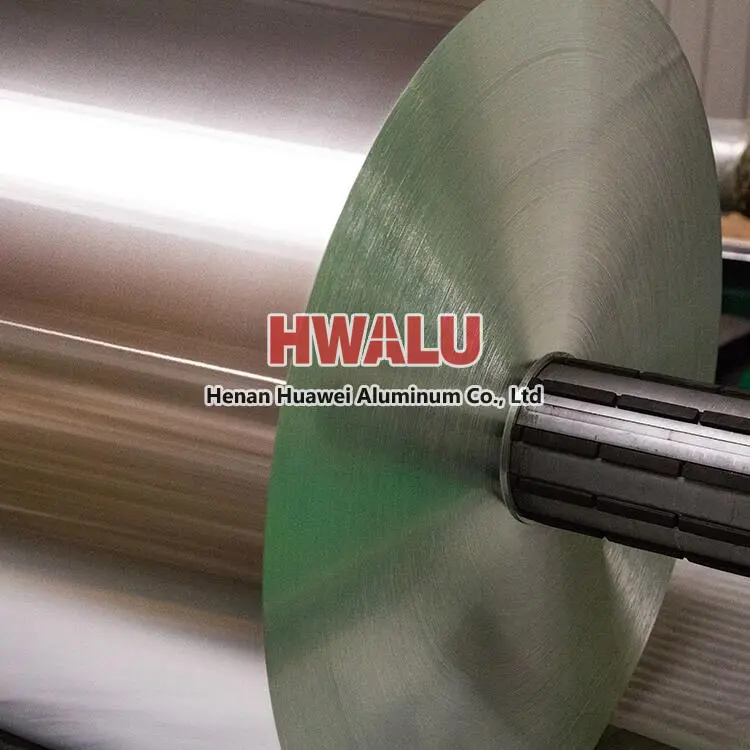Aluminum foil thickness for different purposes Alloy Alloy state Typical thickness(mm) Processing methods End use smoke foil 1235-O、8079-O 0.006~0.007 Composite paper, coloring, printing, etc. Used in cigarette packaging after lining, printing or painting. Flexible packaging foil 8079-O、1235-O 0.006~0.009 Composite paper, plastic film embossing, coloring, printi ...
What is aluminum foil for tablet packaging Moisture-proof, anti-oxidation and light-proof properties: Aluminum foil for tablet packaging has excellent moisture-proof, anti-oxidation and light-proof properties, which can effectively protect medicines from moisture, oxygen and light, thereby prolonging the shelf life and validity period of medicines. Good adhesion: Aluminum foil for tablet packaging has excelle ...
What is aluminum foil for stickers Aluminum foil is a flexible, lightweight material perfect for making stickers. You can use aluminum foil for decorations, labels, stickers, and more, just cut out and add adhesive. Of course, stickers made of aluminum foil may not be as durable as stickers made of other materials, because aluminum foil is prone to chipping and tearing. Also, you need to be careful when using ...
Overview of aluminum foil for electronic products As one of the core materials of electronic devices, aluminum foil for electronic products has always been the focus of electrical appliance manufacturers. As a term that doesn't come up very often, you might have questions about it. What is aluminum foil for electronic products? What are the classifications of aluminum foil for electronic products? What are the a ...
Introduction: At Huawei Aluminum, we take pride in being a leading manufacturer and wholesaler of high-quality aluminum foil paper designed specifically for food containers. With a commitment to excellence and precision, our 3003 Aluminum foil is engineered to meet the highest industry standards, ensuring the safety and reliability of your food packaging. Why Choose 3003 Aluminum for Food Containers? The c ...
Cigarette aluminum foil parameters Alloy: 3004 8001 Thickness: 0.018-0.2mm Length: can be customized according to customer needs Surface: One side has a high light emissivity, and the other side has a soft matt finish. what is the metallic paper in a cigarette box The metallic paper in cigarette packs is aluminum foil. One is to keep fragrance. Aluminum foil can prevent the smell of cigarette ...
Aluminum foil is a versatile material with a wide range of uses across various industries and households. Here are some common uses of aluminum foil: Packaging: Aluminum foil is widely used in packaging applications. It is used to wrap food items, such as sandwiches, snacks, and leftovers, to keep them fresh and protect them from moisture, light, and odors. It is also used for packaging pharmaceutical products ...
Food packaging: Aluminum foil packaging can also be used for food packaging because it is highly malleable: it can easily be converted into flakes and folded, rolled up or wrapped. Aluminum foil completely blocks light and oxygen (resulting in fat oxidation or decay), smell and aroma, moisture and bacteria, and can therefore be widely used in food and pharmaceutical packaging, including long-life packaging (asep ...
Food packaging aluminum foil is related to human health and safety, and is usually produced with specific specifications and characteristics to ensure its suitability for the food industry. The following are some common specifications of aluminum foil for food packaging: Food packaging foil alloy types: Aluminum foil used for food packaging is usually made from 1xxx, 3xxx or 8xxx series alloys. Common alloys in ...
What is the density of aluminum foil alloy? Aluminum foil is a hot stamping material that is directly rolled into sheets of metallic aluminum. Because the hot stamping effect of aluminum foil is similar to that of pure silver foil, aluminum foil is also called fake silver foil. Aluminum foil is soft, malleable, and has a silvery white luster. It also has a lighter texture, thanks to the lower density of aluminum ...
Degreasing pollution is mainly manifested on the surface of the aluminum foil in 0 state. After the aluminum foil is annealed, it is tested by the water brushing method, and it does not reach the level specified in the water brushing test. The aluminum foil that requires the water-washing test is mainly used for printing, composite with other materials, etc. Therefore, the surface of the aluminum foil must be ...
Aluminum foil is a thin sheet of aluminum metal that has the following properties: Lightweight: Aluminum foil is very lightweight because aluminium metal itself is a lightweight material. This makes aluminum foil an ideal material during packaging and shipping. Good sealing: The surface of aluminum foil is very smooth, which can effectively prevent the penetration of oxygen, water vapor and other gases, s ...









